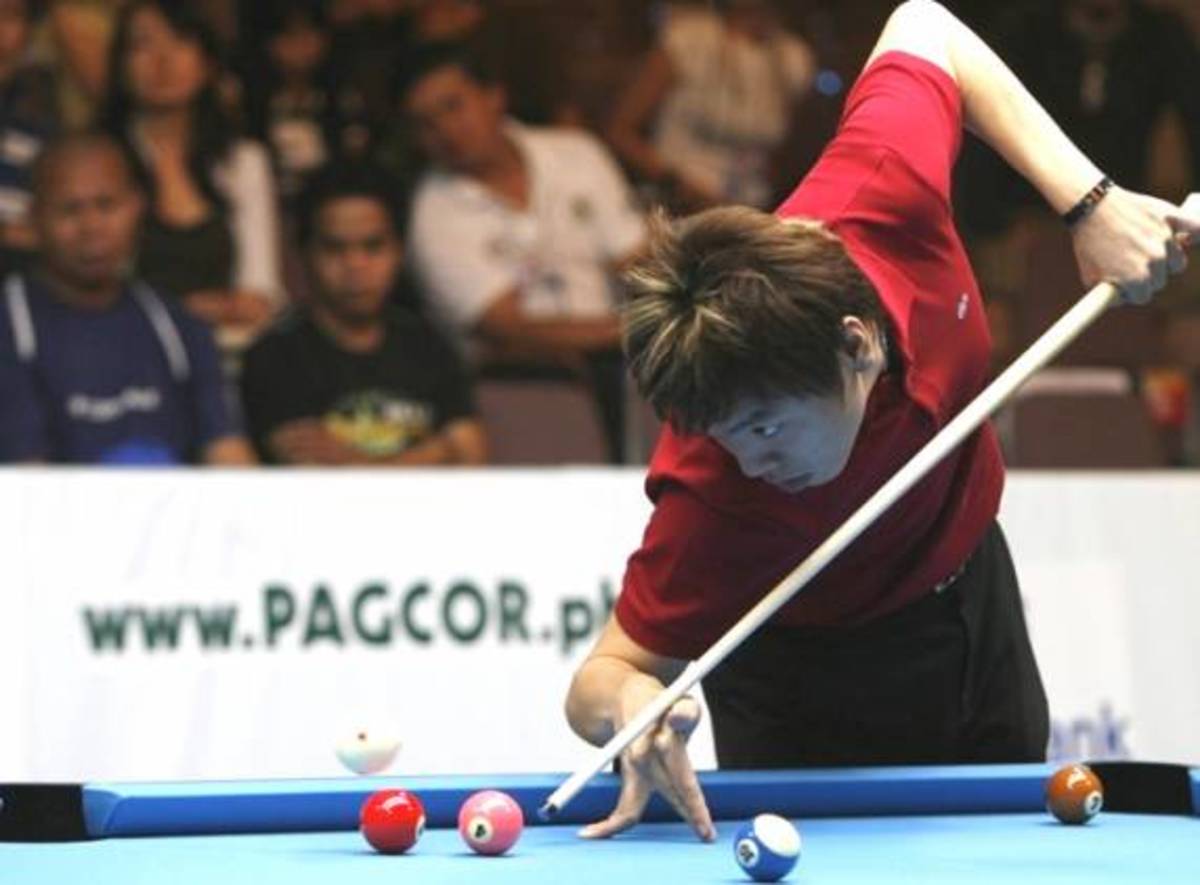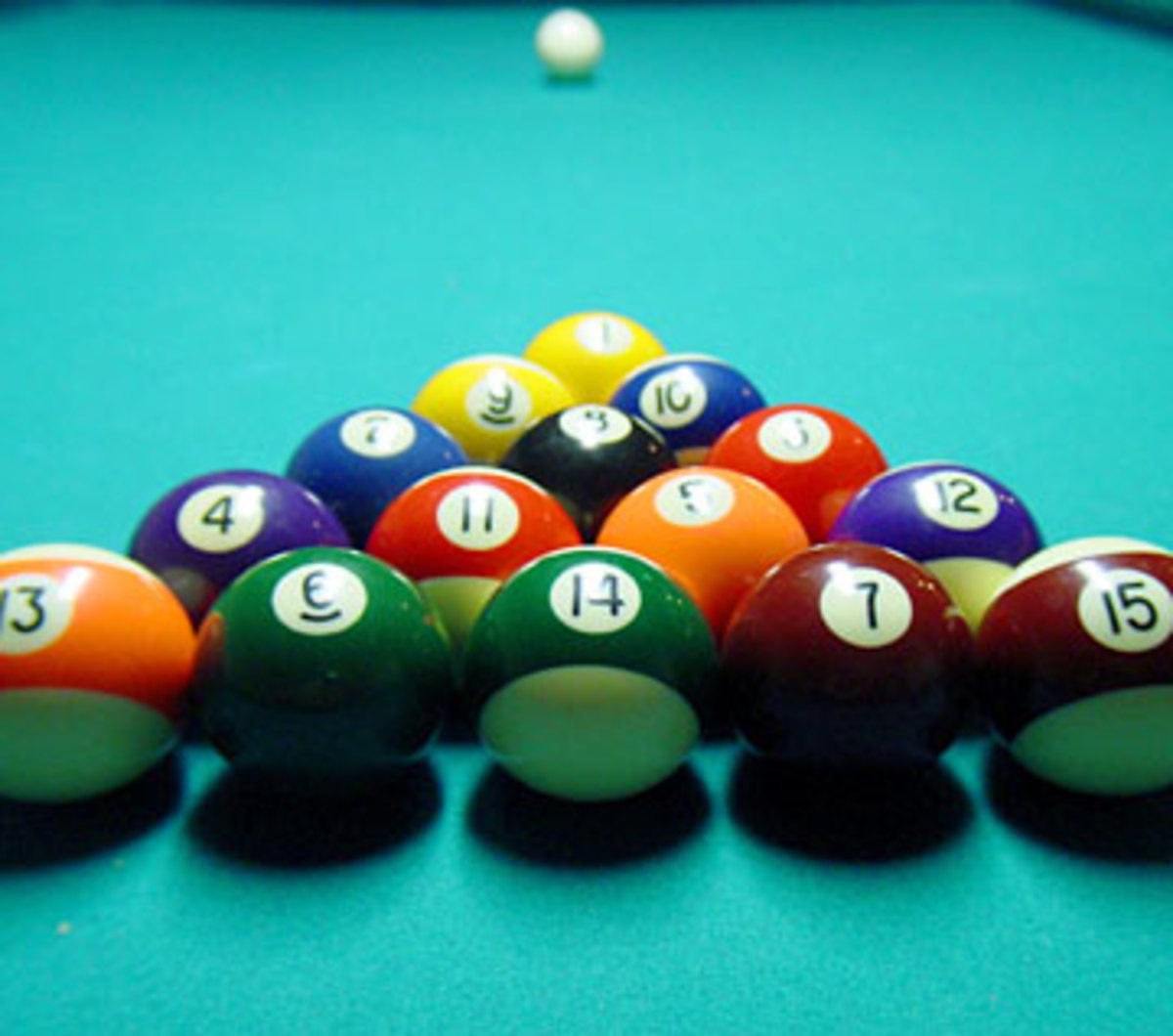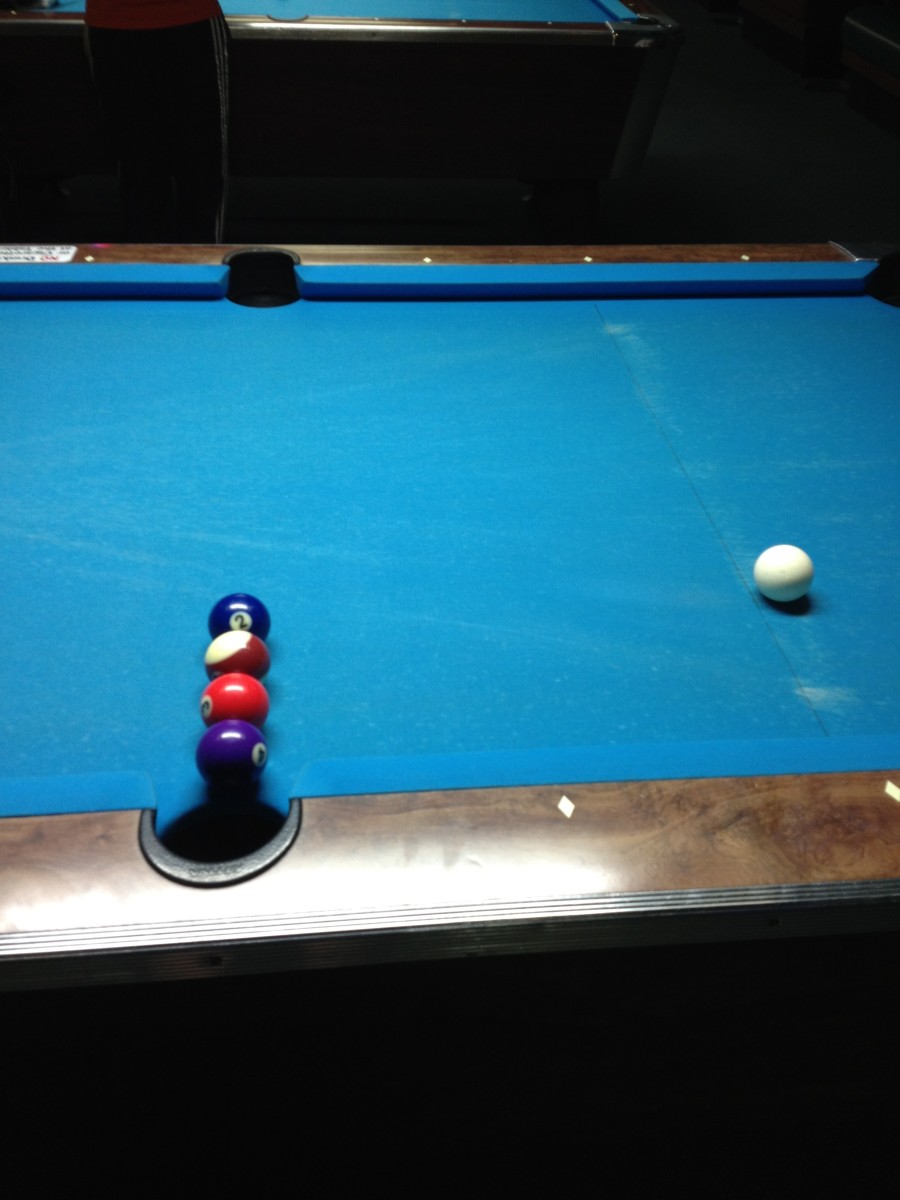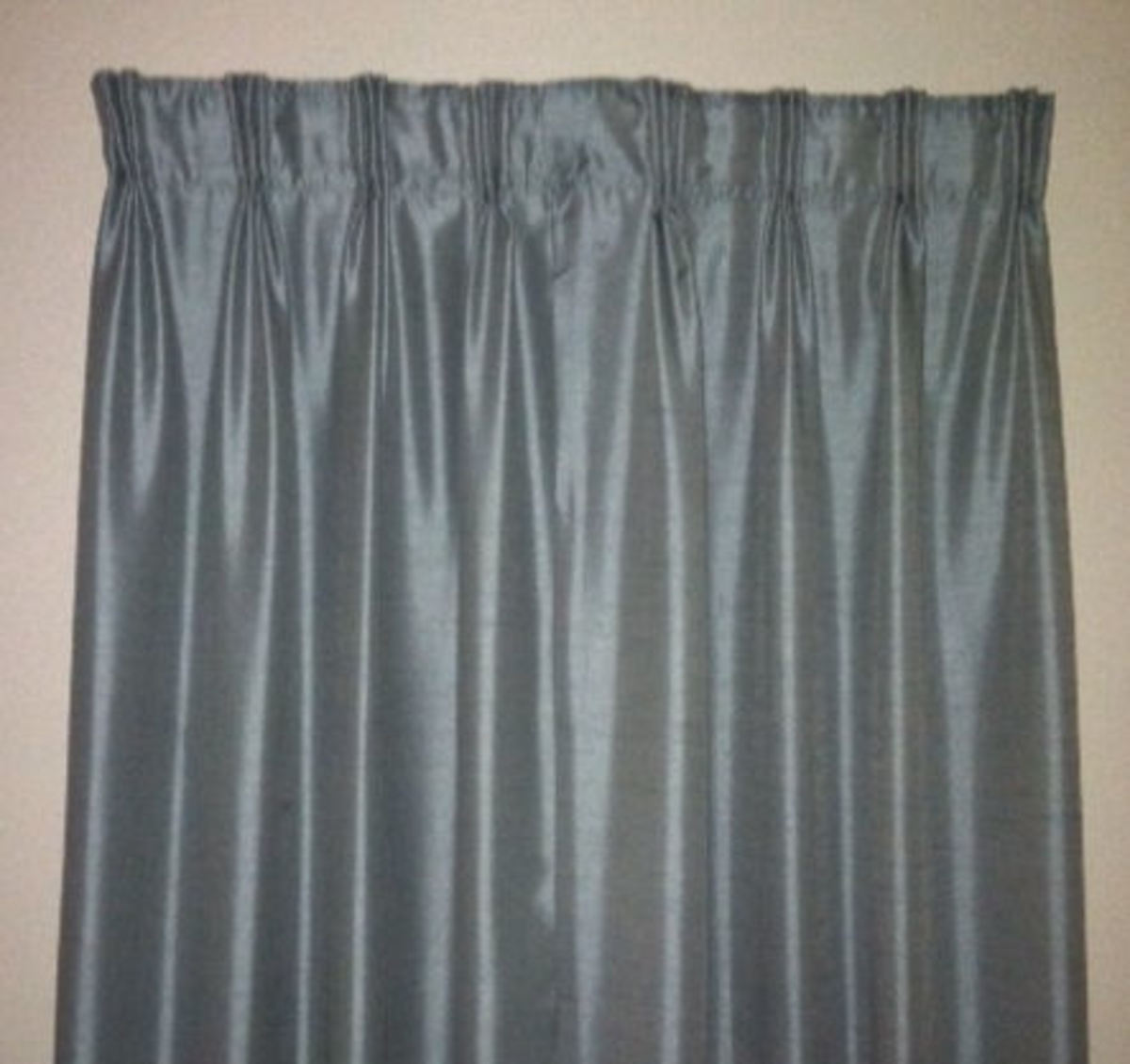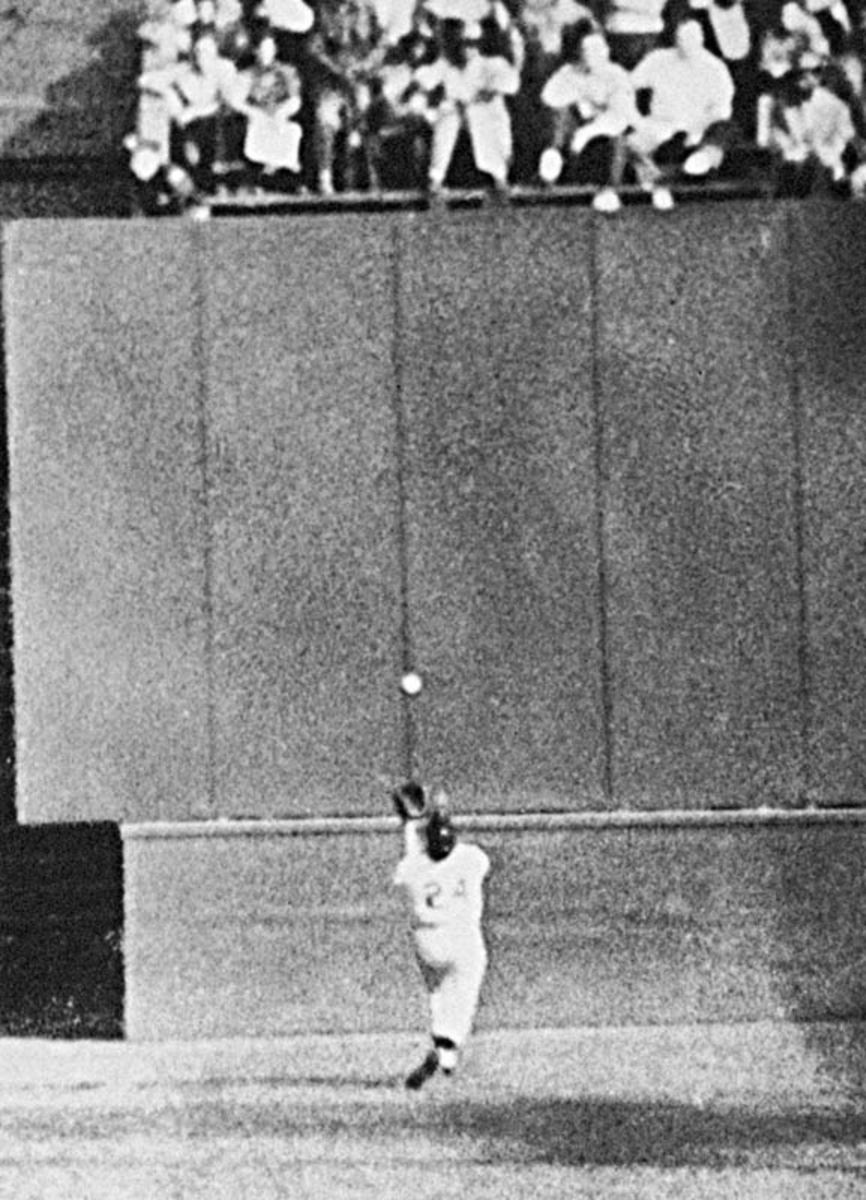How to Buy a Billiards Table to Play Pool at Home
by Kathy Batesel
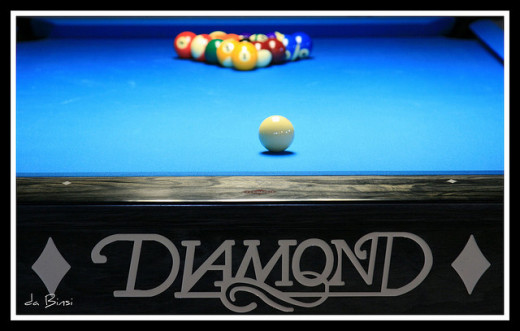
Cheap Tables and Good Tables
My husband and I are preparing to purchase our first pool table. Although I've been playing pool for a couple of decades, I'd always thought all tables were more or less the same, except for their sizes. A quick look at Craigslist showed me dozens of tables I could pick up for a couple hundred bucks.
But now that we are playing competitively and getting ready to plunk down some dollars on a table of our own, we were told that buying a cheap table could cost us more in the long run and potentially hurt the way we play. I was doubtful, and we went to visit a few people who were selling their pool tables. I'm no longer in doubt. Our experienced mentors provided valuable advice when they told us to avoid buying a table just because it was priced low.
The video below assumes a buyer wants a perfect table and can afford to spend whatever it takes. Since most of us don't require such a high degree of perfection, I'm presenting the video as the ideal, followed by information that's realistic for the "rest of us."
Pool Table Sizes
Before you spend on a pool table, you'll want to ensure that you have plenty of room for it. Ideally, you want at least four feet of clear space all around it, free of furniture or objects that could interfere with a smooth stroke when taking a shot.
Economy tables can be as small as three feet by six, which means it could be used in a room as little as 11'x14' (if the room is entirely empty of other furnishings!)
Bar-sized tables are generally about 3 1/2' x 7', and 4'x8' is also a common size, although larger sizes are also available.
When determining the size of table you want, consider your needs. A larger table is ideal for practicing drills and learning angles, but may be too big for most average-sized homes. My husband and I play competitively on bar-sized tables, so we want the same size in our house that we use in competitions.
How often do you play pool?
Fun with Pool
- Fancy Jump Shot Billiard Trick
Watch this video of Mike Lacy, one of the best players in the midwest amateur pool leagues, as he demonstrates this astounding billiards trick shot. Keep reading to learn how to do it yourself. - Billiard Trick Shots: 4 Balls, 1 Shot
With a single shot, can you sink all four balls into separate pockets? This billiard trick shot is easy to master with this step by step instruction guide.
Pool Table Slate
The playing surface of a pool table, known as the bed, is normally constructed from slate and covered by a material that's often referred to as felt. Although slate is the number one material for making a billiard table's bed, other materials have been used. One seller we ran across tried to sell a pool table he'd said was made by Amish craftsman using a hardwood bed! Fiberboard and plywood have also been substituted in cheap pool tables.
If you're looking for a table that won't be used for anything more than letting the kids putz around on it, maybe a wood playing surface would work for you. Wood and fiberboard based tables are lightweight and easier to move. On the other hand, if you're wanting to better your skills, avoid anything that's not slate as if it's radioactive!
During regular play, balls will sometimes jump and land again on the pool table's bed, and inferior surfaces will develop dings and rises that can prevent your balls from going where you want them to. Your table could become virtually worthless in a matter of months if you play regularly on it. They're also prone to warp in high humidity or if something is spilled on them.
Slate is a clay-based sedimentary rock that is well-suited for creating a flat playing surface. Its hardness ensures that it won't be easily damaged once it's installed properly.
Slate can still be affected by humidity or spills, depending on its origin and thickness, but the effects aren't noticeable to average pool players. Most people won't know where the slate in their tables originated, but Italian slate is considered the finest quality because of its superior resistance to the effects of moisture.
Professional tables use 3/4" or 1" thick slate. For home use, some tables have half-inch thick sections. Each billiard table usually has two sections of slate that are placed beside each other. These must be flat and aligned so there is no ridge or seam between them.
Tables with narrower pockets, like Diamond brand tables, force players to become better at their game. If you are a recreational player, larger pockets will let you sink balls easier. Rounded pockets like the ones on snooker tables also can be tough to play. Sharp points around the pocket help to direct balls into the pocket instead of bouncing them away.
Pool Table Cabinets
The legs and frame of a pool table are known as its cabinet. Pool table cabinets can be made from hardwoods, wood-on-wood, laminates or wood veneers. They may be ornamented with attractive craftsmanship or simply accented by metal trimwork. They may have leather pockets or a ball return mechanism built into the cabinet, like you've seen on coin-operated bar tables.
A quality cabinet has a good crossbeam support grid underneath the slate. This may be difficult to evaluate if you're purchasing a used table, but if you purchase a table that was made by a reputable manufacturer, you should be fine.
If you're purchasing a table with leather pockets, you may want to take a closer look at how the pockets are attached to the table. They may use pins to secure the pocket to the cabinet. Pins should be long enough to ensure that sinking a ball won't detach the pocket. The pins themselves will ideally be bolted to the cabinet from the underside.
Billiard Table Felt or Material
Though most people refer to it as felt, pool table material is made from woven cloth. Actual felt will not endure the abuse it would have to take. Although color can add to a table's appeal, players looking to improve their game will be more concerned about the type of material.
The type of felt used on a table affects how the balls roll and respond to your strikes. If you're only going to play at home, your choice of material may not be an important consideration. However, if you play competitively, it's important to use the same type of material you're likely to see in tournaments.
It costs several hundred dollars to replace the felt, but we will only buy a table with napless Simonas material. Simonas allows the balls to roll faster and smoother than thicker, napped material that are designed to withstand wear longer. The tables we play on for our tournaments use Simonas felt, and using a more durable material could affect our ability to make our shots consistently.
Test the material by taking some shots or playing a couple of games to ensure that it meets your needs.
Cushions / Pads / Rails
The rubberized edges along the edges of the playing surface can be called cushions, pads, or rails. What you call them isn't important, but how they affect your playing might be. Look for a nice, solid feel.
The plasticized rubber can deteriorate with age and provide less deflection for bank shots.
Feel the rails with your hands to check for worn areas, and test a few shots to check whether they're deflecting the balls well.
Other Equipment
When purchasing a table, consider other equipment that may be included. For instance, if you buy a brand new table, you'll also have to acquire a set of billiard balls, a rack for setting up games, a cue stick or two, and other accoutrements of the game.
Individuals who are selling their tables may not be replacing their table, so they will include their table accessories as part of the sale. This can add up to a few hundred dollars in extras that you're acquiring with your purchase.
The downside to buying used equipment is considerable, however. You generally will need to move the table yourself (these things are heavy!) and set it up. Plus, their cue sticks and balls may have been abused and become warped or damaged.
Where to Buy Pool Tables
New pool tables can be found through billiard supply stores. Online, both new and used tables can be found through Ebay or Craigslist. When buying a used table, always verify that the seller is local, because shipping costs can run hundreds of dollars! Plus, you want to have a chance to validate what you're getting before you go through the trouble to set it up in your own home.
Although I'm an Amazon associate, I don't recommend buying a table through Amazon if you're wanting a quality table. There is often not enough information to determine the important factors that will let you know that it's the right table for your needs, and the return process can prove challenging and expensive. I also suggest steering clear of the Mizerak line of tables. Even though they've become popular, they use a particle-board playing surface that won't endure well.
Olhausen Billiards is a reputable company that offers beautiful American-made tables that can be ordered online and built by a licensed dealer in the customer's region. Olhausen tables range from simple to ornate, traditional to modern, and customized. They are a bit on the pricey side, but come with great support. They're not generally used in competitive play, but make an attractive and fun addition to your home décor.
For competition tables, consider Diamond, Valley, and Brunswick brands if you don't already have a specific type of table you've been playing in tournaments or league play.



